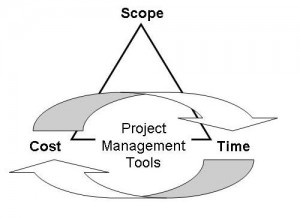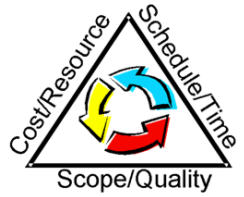3 Reasons Why You Should Have A Good Project Scope
— May 4, 2017Three Key Benefits of a Comprehensive Project Scope
The Importance of Project Scope in Modern Development
Ten years ago, creating a web application involved defining a basic project scope, getting a design approved, and executing the plan with minimal changes. Testing, revision, and detailed modifications were rare practices. However, the landscape of web and mobile development has evolved dramatically over the years.
With the advent of Web 2.0 and the increasing accessibility of technology, users have become more empowered. Today, clients and stakeholders can influence projects in real time, often introducing significant changes that impact timelines, budgets, and deliverables. So, a well-defined project scope becomes essential to ensure project success. This article will explore why a clear scope is critical and how it benefits developers, project managers, and clients.
A Clear Scope Defines a Skilled Developer
A detailed project scope is a sign of professionalism and competence. A company that skips this step may lack the expertise needed to handle complex projects. When outsourcing development work to a provider, the absence of a detailed scope is a red flag.

A good developer or development team should invest time in understanding the project’s requirements before beginning. This involves creating a scope that includes technical specifications, visual design concepts, and expected deliverables. A clear scope demonstrates that the developer is thorough in planning and experienced in identifying potential challenges. Companies that fail to provide this foundational step may encounter issues such as misaligned expectations, poor communication, and incomplete deliverables.
By establishing a comprehensive scope early, developers can align their expertise with the client’s vision. This ensures that the project is set up for success, with both parties understanding the objectives and the pathway to achieving them.
Accurate Scoping Leads to Transparent Costs
One of the most significant advantages of a defined project scope is the ability to estimate costs accurately. Clients often struggle with unexpected expenses, which can arise from poorly defined project requirements. A detailed scope eliminates ambiguity, offering a clear understanding of what is included in the project and what will incur additional costs.
A well-documented scope should outline every element of the project. This includes the number of web pages, their layout, and specific functionalities. It should also account for visual assets such as images, icons, or logos, and designate responsibilities for obtaining or creating these elements. For example, if a website requires custom imagery, the scope should specify whether the client or the development team will procure or pay for them.
Unauthorized use of images or other media from the internet, a common issue in the absence of a defined scope, can lead to legal and financial problems. Clearly defining these elements prevents such risks. For businesses outsourcing development to regions like Vietnam, where affordability meets high-quality delivery, understanding cost breakdowns ensures that clients maximize their budget without compromising on quality.
The timeline is another critical aspect of the scope. Including checkpoints and deadlines ensures that responsibilities are shared between the client and the developer. When all these details are accounted for, an accurate cost estimate can be calculated, breaking down expenses for each activity or deliverable. This transparency builds trust and helps both parties avoid disputes during the project.
A Defined Scope Protects Against Scope Creep
Scope creep, or the tendency for projects to expand beyond their original objectives, is a common challenge in development projects. A well-defined scope acts as a safeguard against this issue, providing a reference point to manage changes effectively.
For project managers, a comprehensive scope is an invaluable tool. If a client requests significant changes after both parties have agreed on the project details, the scope clarifies whether these changes fall within the agreed terms. If not, the manager can use the scope to communicate the additional time, resources, and costs required to accommodate the new requests.
This clarity is especially important for projects with strict deadlines. Missing deadlines due to unplanned changes can result in financial losses, missed opportunities, or even damage to the developer’s reputation. With a well-documented scope, project managers can maintain accountability while minimizing disruptions caused by scope creep.
For in-house development teams, a thorough scope is equally critical. When internal clients request projects, a defined scope ensures that all requirements are considered in advance. This allows project managers to set clear expectations, allocate resources efficiently, and adhere to deadlines. The result is a streamlined development process that minimizes wasted time and reduces the risk of project failure.
Enhanced Collaboration and Accountability
Beyond its practical benefits, a clear project scope fosters better collaboration between clients and developers. When both parties agree on the scope, they share a common understanding of the project’s goals, deliverables, and constraints. This reduces the likelihood of misunderstandings and promotes a cooperative working relationship.
For clients, a defined scope provides confidence in the development process. They can track progress against the documented plan, ensuring that the project stays on course. For developers, the scope serves as a guide to prioritize tasks and manage resources effectively. This alignment is particularly valuable in outsourcing scenarios, where teams may be working across different time zones or cultural contexts.
Additionally, a well-documented scope can act as a legal safeguard. In cases of disputes, the scope serves as evidence of the original agreement, protecting both parties from potential liabilities.
Conclusion
A well-defined project scope is not just a formality; it is a foundation for success in software application development. It ensures that developers are prepared, costs are transparent, and projects remain focused on their objectives.
Investing time in creating a detailed scope may seem like an additional step, but it pays off in the form of efficient collaboration, reduced risks, and successful project outcomes. Whether you are a client, developer, or project manager, prioritizing a clear scope is the key to navigating today with confidence.










